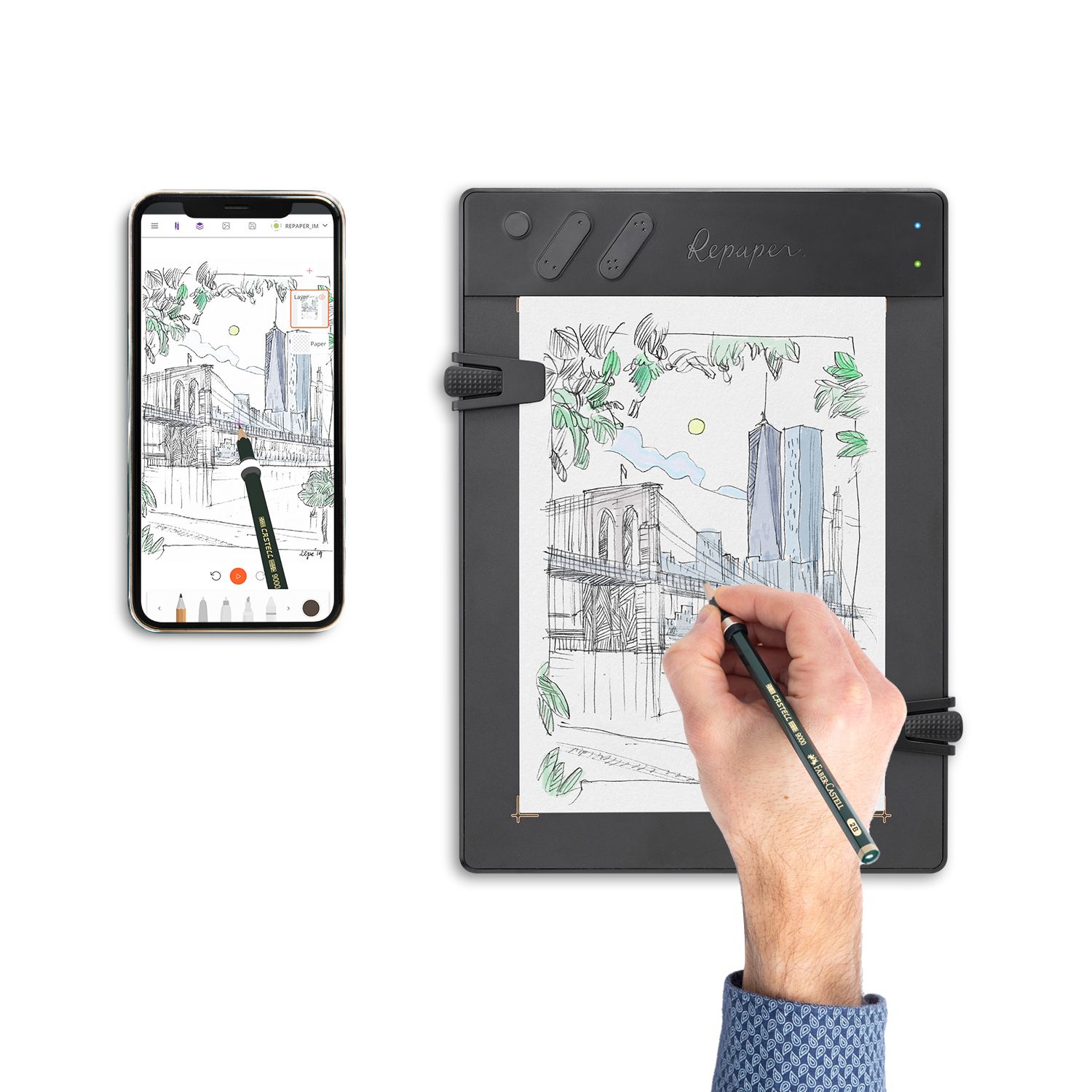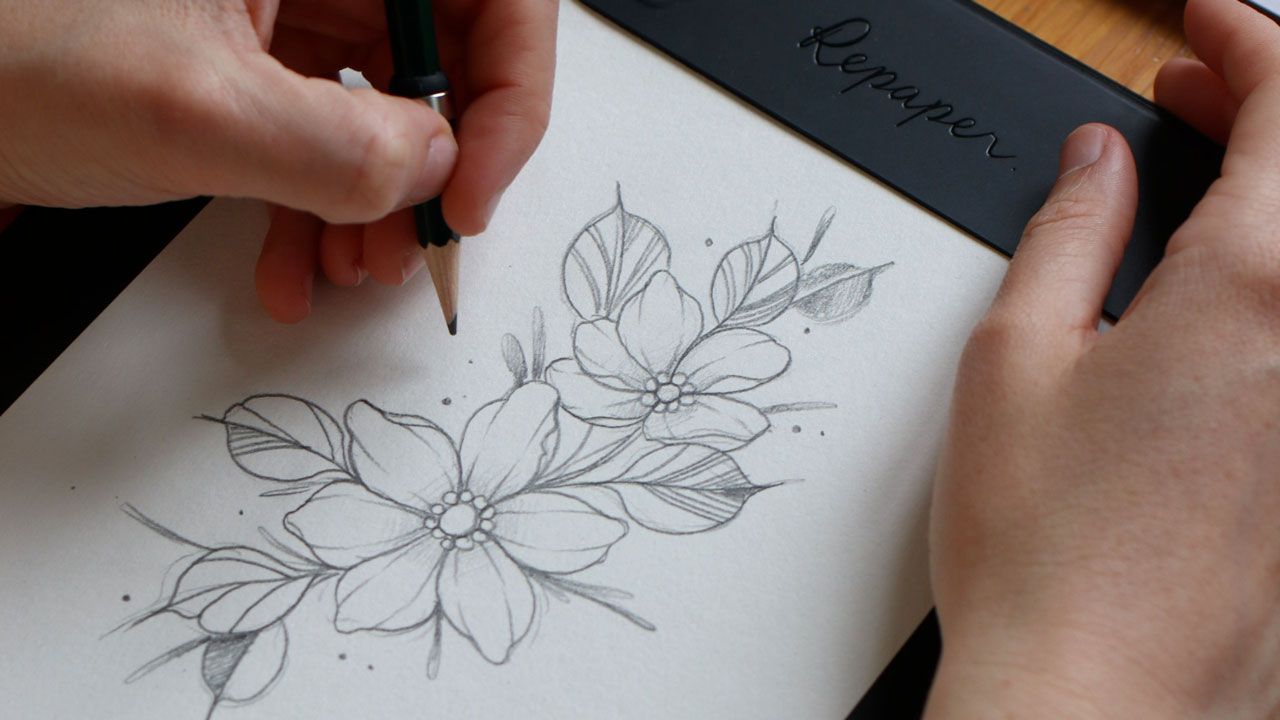
The Ultimate Guide to Drawing Leaves: Capturing the Beauty of Nature
How to draw leaves ?
Leaves are a common subject in art due to their natural beauty, variety, and symbolism. Whether you're drawing a single leaf or a lush forest, understanding the basics of leaf structure and illustration techniques is essential. In this comprehensive guide, we'll explore various types of leaves and provide step-by-step instructions for drawing them, ensuring you'll have the perfect foliage for any artistic project. Grab your Repaper drawing tablet and get ready to capture the beauty of nature!


Drawing made by @sollefe with Repaper
How to draw a simple leaf ?
A basic leaf shape is an excellent starting point for beginners or those who want to focus on the fundamentals of leaf illustration.
Step 1: Draw the leaf's central vein by sketching a slightly curved line. This will also help you establish the leaf's overall shape and size.
Step 2: Sketch the leaf's outline by drawing two symmetrical curves that extend from the base to the tip of the central vein. You can experiment with different shapes to represent various types of leaves, such as oval, lanceolate, or heart-shaped.
Step 3: Add secondary veins that branch out from the central vein. These veins can be straight or slightly curved, depending on the type of leaf you're drawing.
Step 4: Use shading techniques to create depth and dimension. Consider the direction of the light source and add shadows and highlights accordingly.

Drawing by @miamilu_ with Repaper
How to draw a compound leaf ?
A compound leaf consists of multiple leaflets attached to a central stem. This type of leaf requires a more complex approach to accurately capture its structure.
Step 1: Draw the central stem or rachis as a slightly curved line. This will help you establish the overall structure of the compound leaf.
Step 2: Sketch the individual leaflets along the central stem. You can use the simple leaf method described earlier to create each leaflet. Be mindful of the size, shape, and arrangement of the leaflets, as they can vary greatly depending on the type of compound leaf.
Step 3: Add secondary veins to each leaflet, ensuring they are consistent with the leaflet's shape and the overall compound leaf structure.
Step 4: Use shading techniques to create depth and dimension within each leaflet and the compound leaf as a whole. Pay attention to the light source and add shadows and highlights accordingly.

Drawing made by @sollefe with Repaper
How to draw a detailed leaf texture ?
To create a more realistic and detailed leaf illustration, you can incorporate textures that mimic the leaf's surface.
Step 1: Begin by drawing the basic shape of the leaf and its veins, as described in the simple leaf section.
Step 2: Observe the leaf's texture closely, noting any bumps, ridges, or patterns on its surface. Lightly sketch these details onto your leaf illustration, using a combination of dots, lines, and cross-hatching techniques.
Step 3: Refine your texture by darkening your lines and incorporating more detailed shading. Make sure to maintain consistency in the texture throughout the entire leaf.
Step 4: Add highlights and shadows to enhance the three-dimensional effect of your leaf illustration.

Drawing made by @sollefe with Repaper
With these leaf drawing techniques, you'll be well-equipped to create a variety of foliage illustrations for any artistic project. Practice your skills, experiment with different types of leaves, and let your imagination run wild. Whether you're designing a botanical art piece or simply want to add a touch of nature to your work, these leaf drawing techniques will help you bring your vision to life. Remember, the key to mastering any art form is practice, so keep honing your skills and exploring new techniques to create captivating leaf illustrations.
Discover more
How to draw flowers: some simple and good tips
If you're looking for tips on how to draw flowers, you've come to the right place.
How to draw animals: Tips for realistic, successful drawing.
Feathers, scales or fur...Draw animals in all shapes and sizes by following this tutorial that will give you the right reflexes!
What to do with a graphic tablet?
The graphic tablet, without or with screen, or hybrid, has become a must for many uses.
Newsletter
Keep up to date with iskn news and events
Free standard delivery
for purchase over €80
30-day returns
on all products
Secure payment
with Stripe & PayPal
Pay in 3
with Alma
Customer service
chat with us


